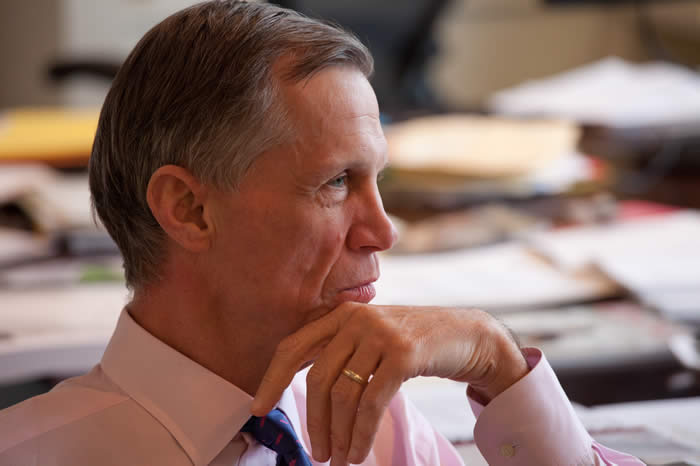On the NYPD’s Surveillance of Muslim Students
Since its founding, The New School has sought to hold itself and our society to the highest ideals of free discourse. But The New School’s commitment to these values is not a historic artifact. Today, the unique, pertinent education informed by a tradition of free and open inquiry make our university a successful experiment in American higher education. I came to The New School because I believe in this mission and I value this history. That is why I was so concerned when I learned that the New York Police Department had been conducting surveillance and infiltration of Muslim student groups at universities in New York City and as far as 300 miles away, apparently for no other reason than the religion of their members. Although the NYPD, to our knowledge, did not perform this type of surveillance at The New School, actions like these represent an unacceptable threat to privacy and intellectual freedom that can quickly damage all universities in the region, not to mention our society more generally. Academic and intellectual freedom cannot flourish in a climate of fear and suspicion. Freedom to express one’s mind without fear of reprisal is written into the DNA of The New School. Indeed, our two founding moments were reactions to oppressive movements. The creation of The New School in 1919 was first spurred when Charles Beard resigned his position at Columbia in protest of the university’s demand that he and others take a loyalty oath to the United States government. Almost two decades later, in 1933, university President Alvin Johnson planted the seeds for the current incarnation of what is now The New School for Social Research when he established University in Exile as a home for European academics threatened by the rise of Fascism.
I came to The New School because I believe in this mission and I value this history. That is why I was so concerned when I learned that the New York Police Department had been conducting surveillance and infiltration of Muslim student groups at universities in New York City and as far as 300 miles away, apparently for no other reason than the religion of their members. Although the NYPD, to our knowledge, did not perform this type of surveillance at The New School, actions like these represent an unacceptable threat to privacy and intellectual freedom that can quickly damage all universities in the region, not to mention our society more generally. Academic and intellectual freedom cannot flourish in a climate of fear and suspicion. Freedom to express one’s mind without fear of reprisal is written into the DNA of The New School. Indeed, our two founding moments were reactions to oppressive movements. The creation of The New School in 1919 was first spurred when Charles Beard resigned his position at Columbia in protest of the university’s demand that he and others take a loyalty oath to the United States government. Almost two decades later, in 1933, university President Alvin Johnson planted the seeds for the current incarnation of what is now The New School for Social Research when he established University in Exile as a home for European academics threatened by the rise of Fascism.
These are stories you likely know well, but in light of the revelations about the NYPD, it behooves all of us to reflect on what they mean for us as engaged citizens. First, they teach us that suspicion of those with beliefs perceived as different is a persistent problem. This mindset conflates difference with danger. Second, these stories teach us that speaking against harmful stereotyping is always a worthy effort. The impact is not always immediate and the result is not always apparent. But every utterance of distrust of otherness matters. Speaking out inspires others to do the same, and can gather enough power to drive back fear and encourage open discourse.
I join others in opposing this type of surveillance of Muslim students and their organizations. To place students under police watch due to their religious practice runs counter not only to The New School’s values, but to those of our nation. I would not stand for it at our university, and we cannot stand for it at our sister institutions of higher learning.







Leave a Reply